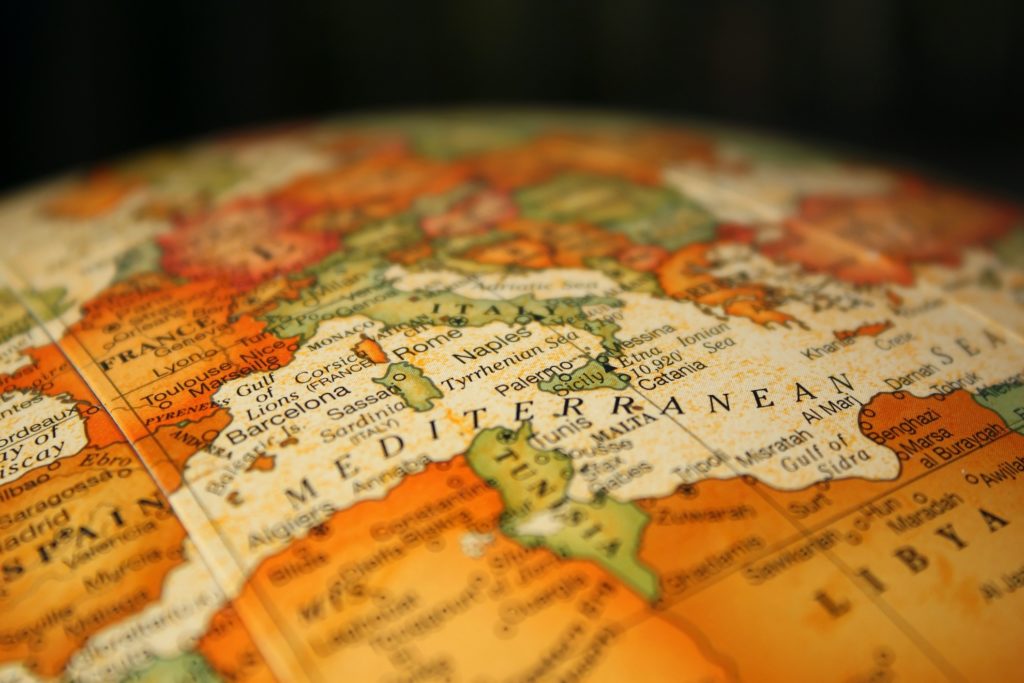Indeed, some of the earliest articulations of theological truths—the Apostles Creed and Nicene Creed—unashamedly declare that the one, holy, apostolic church is also catholic. Of course, the theological confusion and historical background related to the term catholic were not present when these creeds were penned.
Initially, catholic merely meant the general or universal church as opposed to a local expression of the body. As the centuries passed and controversy over doctrine arose, the term catholic was equated with those churches who aligned with the authority and teaching of the bishop of Rome. By speaking of the church catholic, many today quickly assume reference to the Roman Catholic Church, but this is not necessary, because this theologically rich term denotes much more.
Cyril of Jerusalem on Catholicity
Cyril of Jerusalem (A.D. 315–386), was Bishop of Jerusalem and present at the Council of Constantinople in 381 when the Nicene Creed was written. Cyril explained what the authors of the creed meant when they used the term catholic by stating,
The Church is called ‘Catholic’ because it extends through all the world, from one end of the earth to another. Also because it teaches universally and without omission all the doctrines which ought to come to man’s knowledge, about things both visible and invisible, heavenly and earthly; and because it brings under the sway of true religion all classes of men, rulers and subjects, learned and ignorant; and because it universally treats and cures every type of sin, committed by means of soul and body, and possesses in itself every kind of virtue which can be named, in deeds and words, and spiritual gifts of every kind.1
Cyril’s definition of catholic contains four discernible elements.2
1. UNIVERSAL GEOGRAPHIC EXTENT
The kingdom of the Sovereign God who is Creator, Ruler, Judge, Savior, and Redeemer extends to every location. The universal extension of his kingdom geographically is a natural result of his omnipotence, omnipresence, and omniscience.
2. FULLNESS OF TRUTH, TEACHING, AND DOCTRINE
Cyril asserted the veracity of the gospel in all that it claims and sufficiency in providing all that humans need to know in relation to God. The Scripture is total, complete, and sufficient.
3. UNIVERSAL APPLICATION
Universal application does not mean that every individual will receive salvation (universalism), but that the gospel is powerful to save every type of person without distinction or exclusion because of their economic class or social position (Gal 3:26–29). The church is catholic because people of every language, culture, ethnicity, tribe, and nation will become a part of the people of God. The universal application of the gospel is much more than a coincidence; it is ultimately part of the mission and purpose of God in redeeming a lost world (Rev 7:9–11).
4. UNIVERSAL EFFECTIVENESS
Cyril emphasized the power of the gospel to deliver sinners from every evil bondage and nurture them in faith and virtue. The gospel effectively restores all people who come by faith to a right relationship with God, no matter their past sins.
These four truths about catholicity compel the church outward into dynamic missionary activity, seeking the geographic extension and universal proclamation of the kingdom of God. Catholicity is not only an anchor to help the church remain faithful to the apostolic faith, but it also provides a theological basis for global missions.
How Catholicity Compels Mission
I want to share four biblical/theological reasons that catholicity contributes to the church participating in God’s mission to the nations.
1. GOD’S CALL OF PARTICULAR PEOPLE HAS UNIVERSAL, MISSIONAL IMPLICATIONS
When God called Abraham (Gen 12:1–3; 15:5–18), his plan was always to bless all the families of the earth. God chose the nation of Israel to be a light to the nations, not to merely enjoy the blessings and promises of God in isolation, excluded from the reset of creation. As the universal church guards the truths that saints have always believed, faithfulness demands participation in missions and inviting all peoples to worship the one, true God. The church did not simply decide at some point to include all nations in its membership. Instead, the salvation of the nations was part of the original plan and mission of God himself.
2. JESUS GAVE US A CATHOLIC COMMISSION IN MATTHEW 28
Jesus uses the word “all” four times in the Great Commission. Catholicity signifies what is total, complete, and universal; therefore, Matthew 28 is rightly understood as a catholic mission. Jesus said that he had “all authority” (Matt 28:18) and now he sends his disciples to proclaim his universal reign. Jesus also commands the disciples to got to all nations (Matt 28:19), to teach all things (Matt 28:20), and reminded them of his presence into all the ages (Matt 28:20). Every part of the Great Commission communicates fullness, completeness, and totality. The church has a catholic mission as they proclaim the universal rule of Christ to all nations.
3. JESUS PRAYED A CATHOLIC PRAYER IN JOHN 17
In John 17:13–26, Jesus prayed for his disciples that they have personal holiness and unity in the mission. Jesus prayed that the disciples would not lose or compromise the truth revealed to them (John 17:14–17). From this prayer, we see Jesus desired that his disciples know, teach, and defend the gospel. Based on his own unity with the Father, Jesus went on to pray for unity among Christians “so that the world may believe” (John 17:21). Unity is therefore both an existential reality based on the divine Trinity and a utilitarian need based on the church’s mission to the world. From these verses, it is evident that catholicity and unity are not primarily institutional, but functional as Christians partner together for mission to the world.
4. PENTECOST WAS A CATHOLIC HARVEST AS PEOPLE FROM MANY NATIONS BELIEVED
At Pentecost, residents of neighboring nations came to Jerusalem, felt conviction by the gospel message, and asked, “What shall we do?” (Acts 2:37). Three thousand responded in repentance to the message, received baptism, and were part of the spiritual harvest on that day (Acts 2:37–41). Through the miracle of tongues, God was gathering a people from the nations and showing that the gospel was for the whole world. This day initiated something new as “Pentecost revealed the nature and mission of the church as catholic.”3 The Holy Spirit reaped a catholic harvest at Pentecost that forever bound the people of God together in a partnership to fulfill the mission of God to all the world.
The church has the task of remaining faithful to the faith that was once and for all delivered to the saints (Jude 3). The church is unique and exalted, because it is “… that community created and authorized by the Word of God in order that it might obediently guard, discern, proclaim, and interpret the Word of God.”4 The church has historically taken this role seriously, but has often made being catholic a source of division or forced a false institutional model of catholicity.
The church is not only to anchor itself in the apostolic faith, but also to engage in missional partnerships today. The redemptive narrative of Scripture shows that God has been calling a people to participate in his plan to redeem the world (2 Cor 5:17–21). The whole body of Christ, together, has the joy and duty of taking the fullness of God’s revelation to the ends of the earth, until the end of time—in other words, the catholic church partners together in the catholic mission.
1. Cyril of Jerusalem, Catechesis 18.23. Cyril of Jerusalem, “Lecture XVIII On the Words, And in One Holy Catholic Church, and in the Resurrection of the Flesh, and the Life Everlasting,” in The Catechetical Lectures of St. Cyril of Jerusalem, ed. Paul A. Böer Sr. (Veritatis Splendor Publications, 2014), 626–627. Bettenson, The Later Christian Fathers, 39.
2. T. A. Lacey, Catholicity: Conciones Ad Clerum (London: A.R. Mowbray, 1914), 99–104. A. G. Hebert, The Form of the Church (London: Faber and Faber, 1954), 99–105.
3. Hallig, We Are Catholic, 99.
4. Allen and Swain, Reformed Catholicity, 102.
This article originally appeared on The Center for Baptist Renewal. Used with permission.





